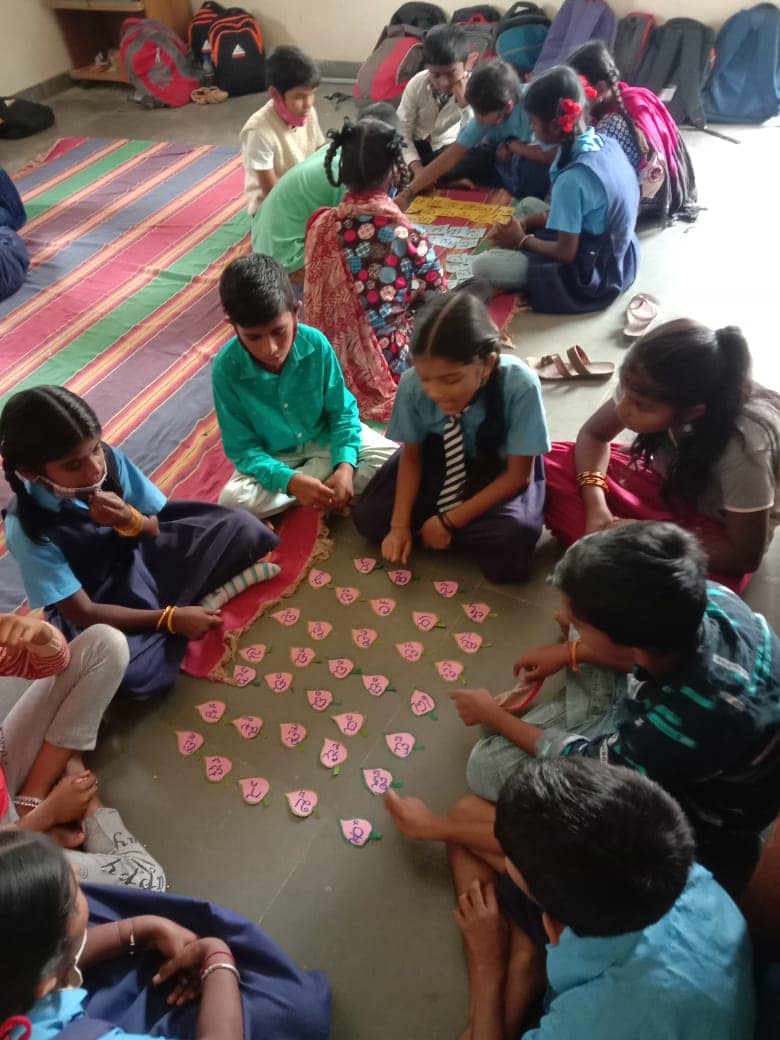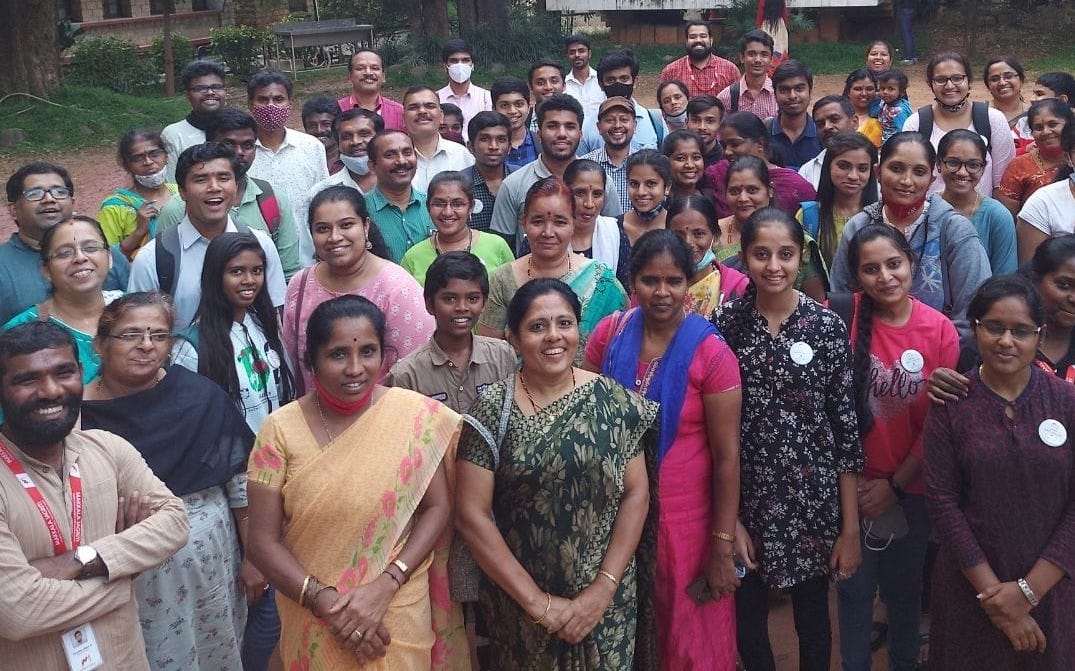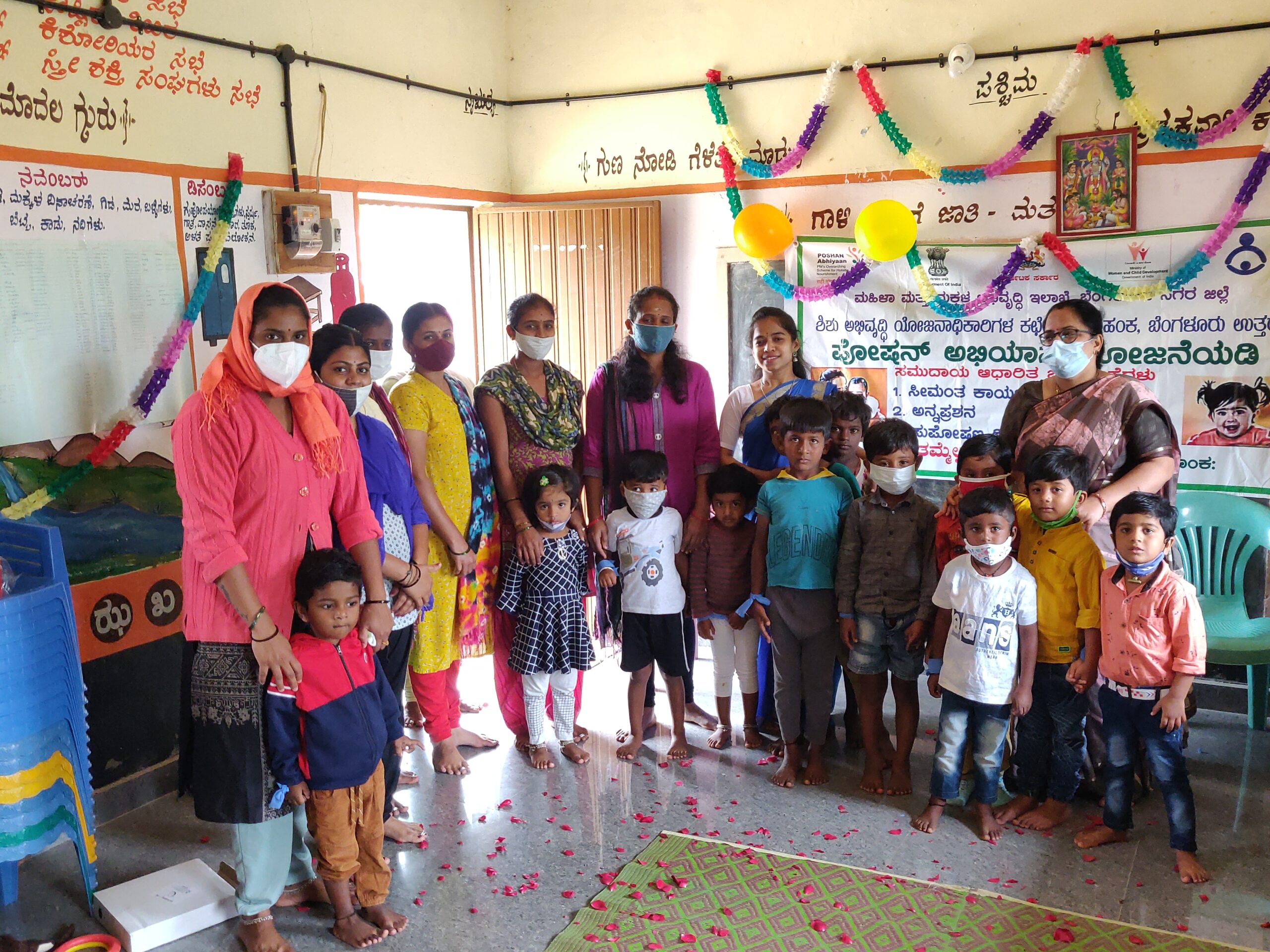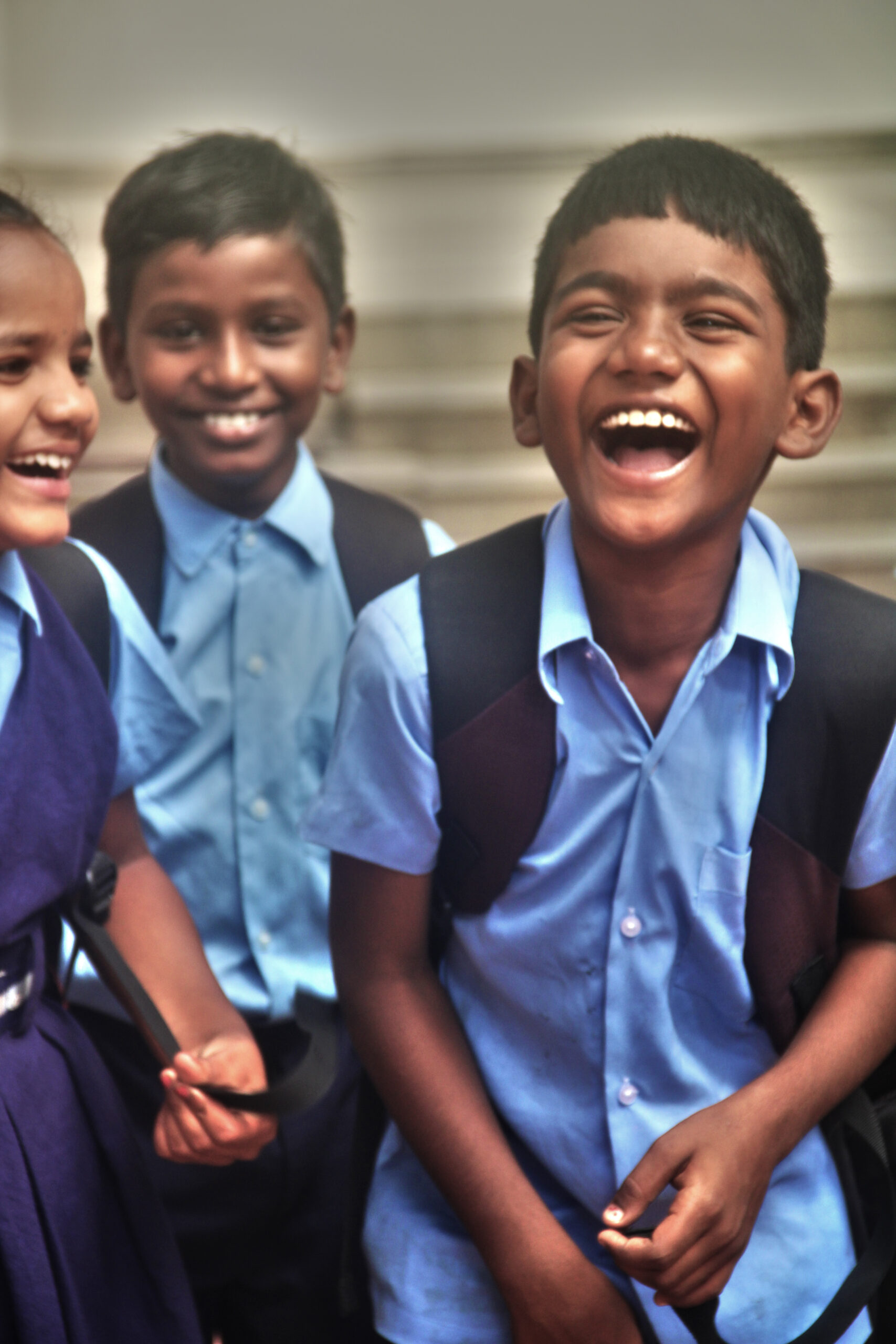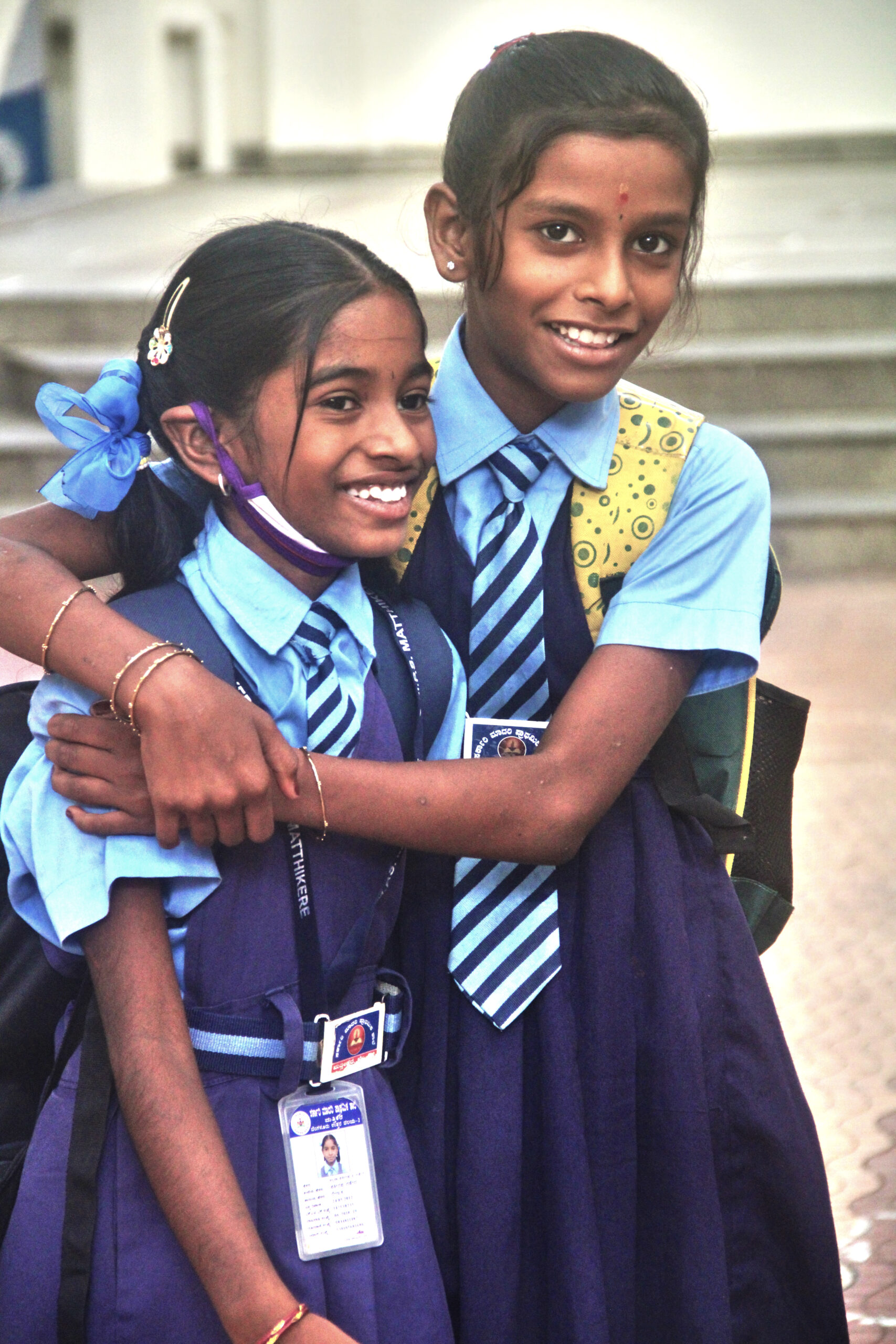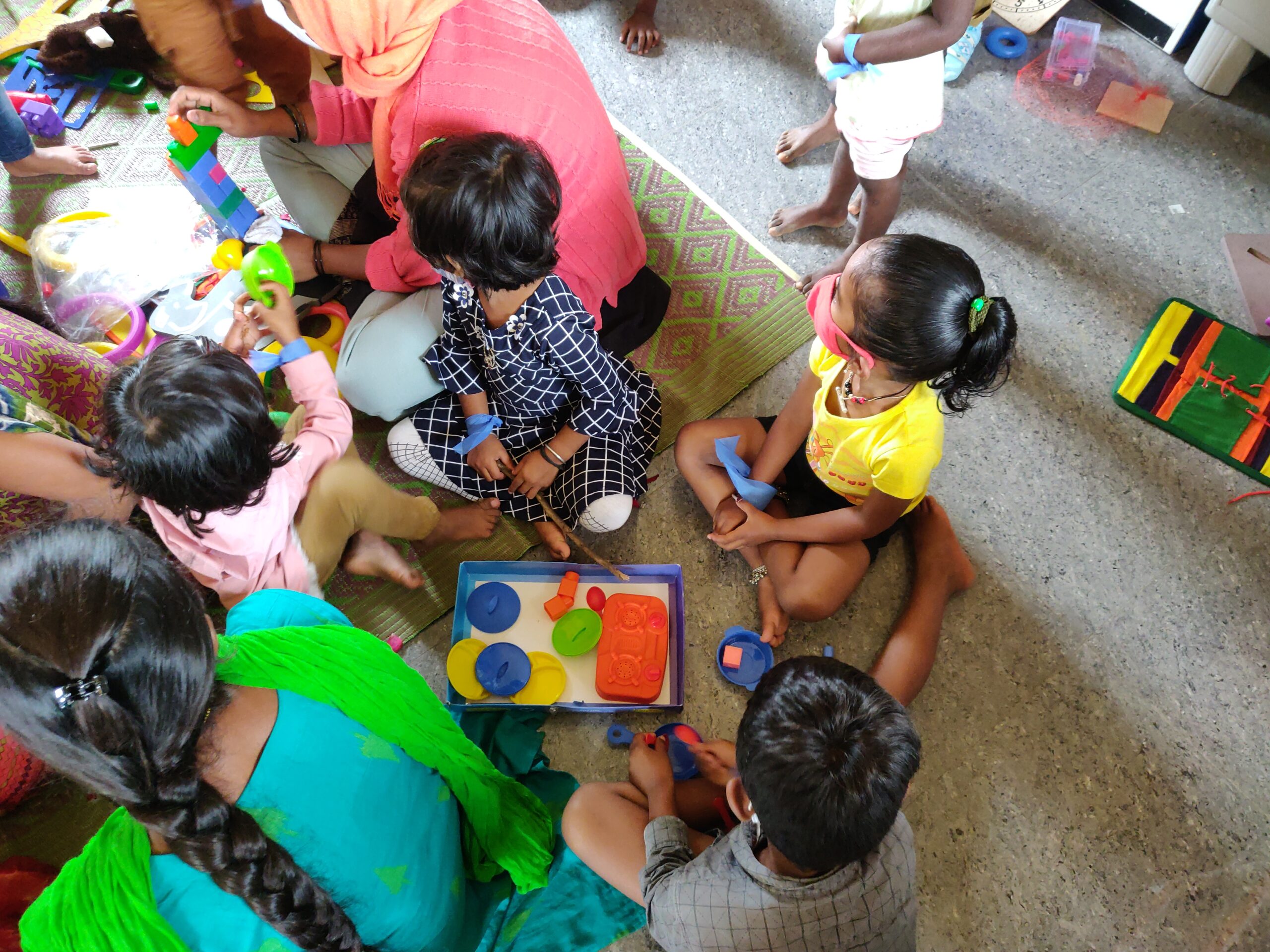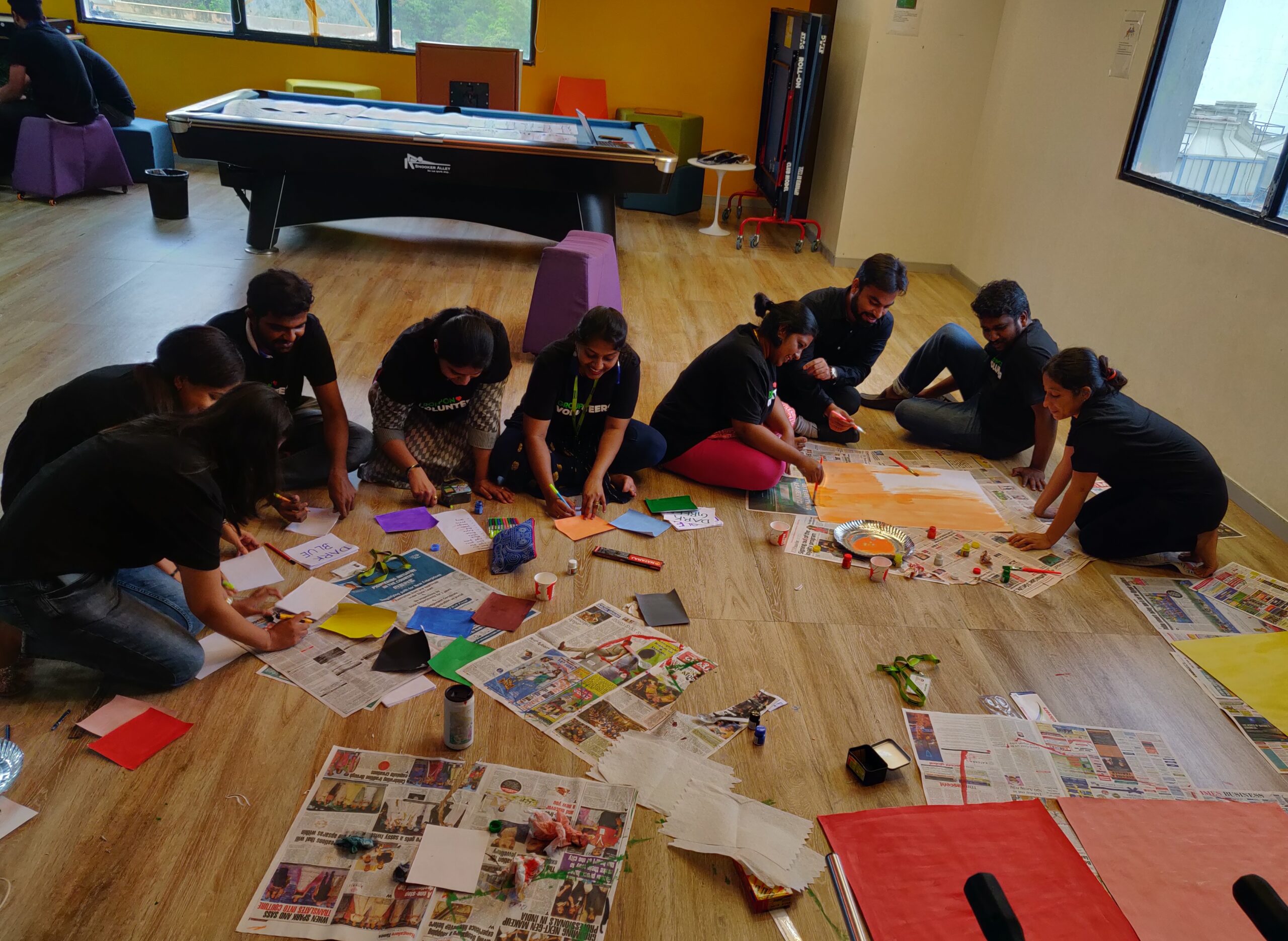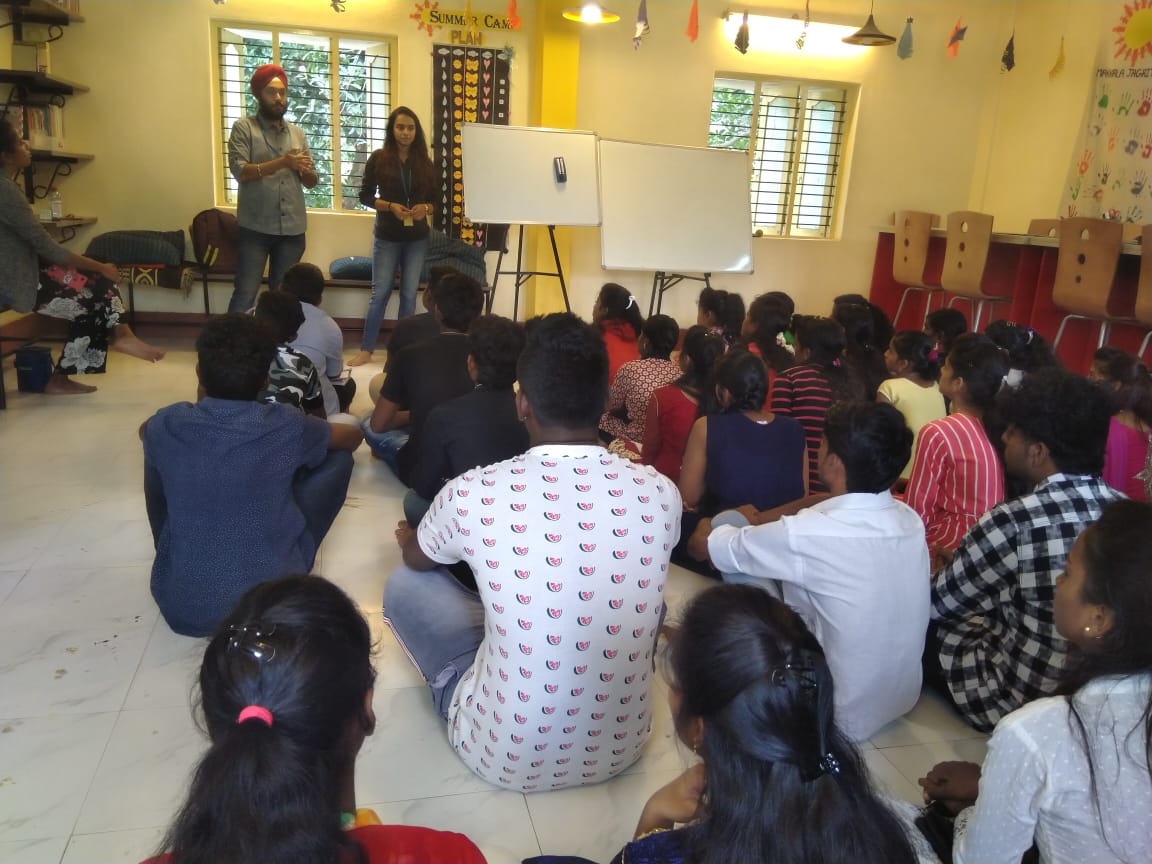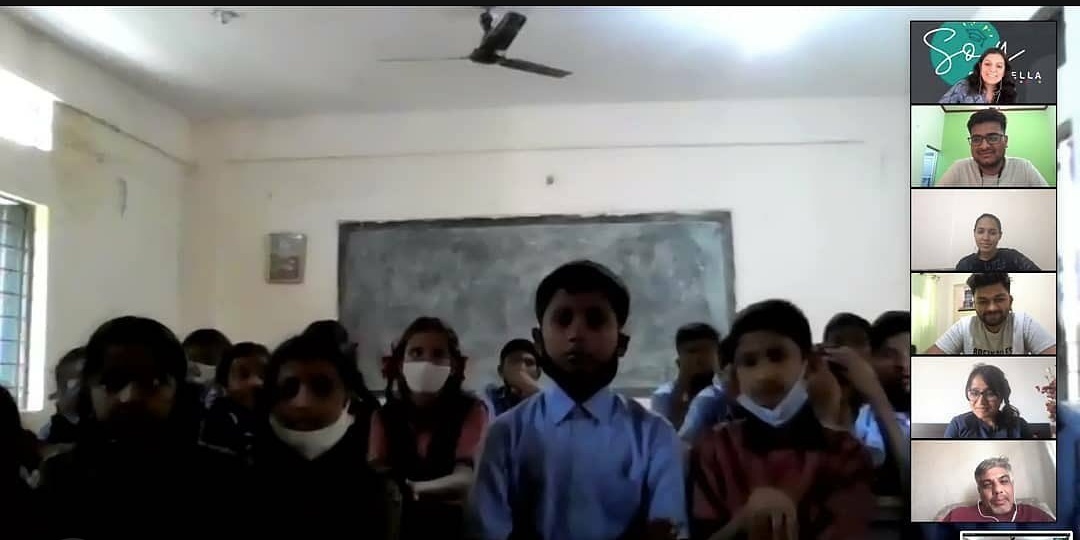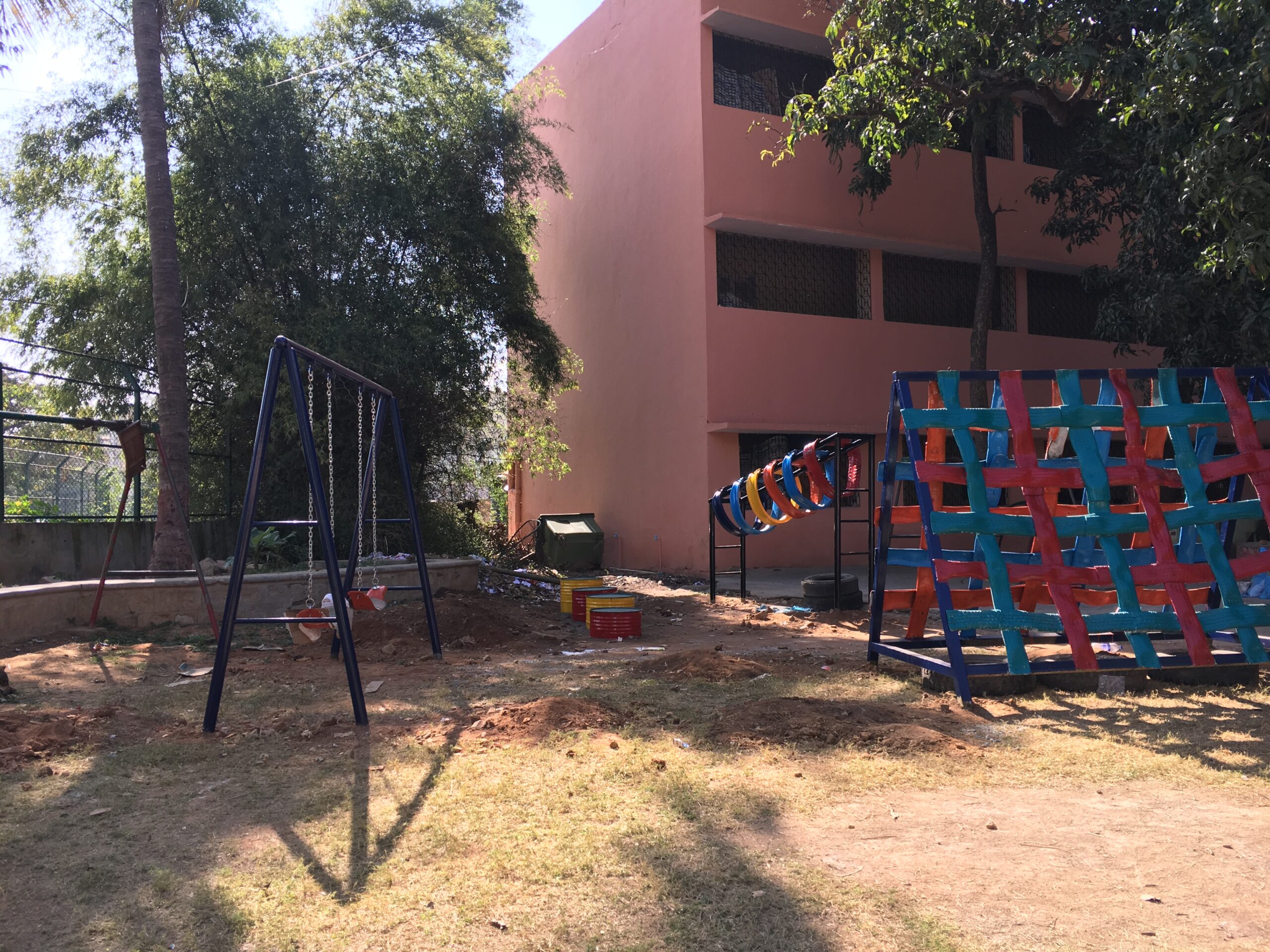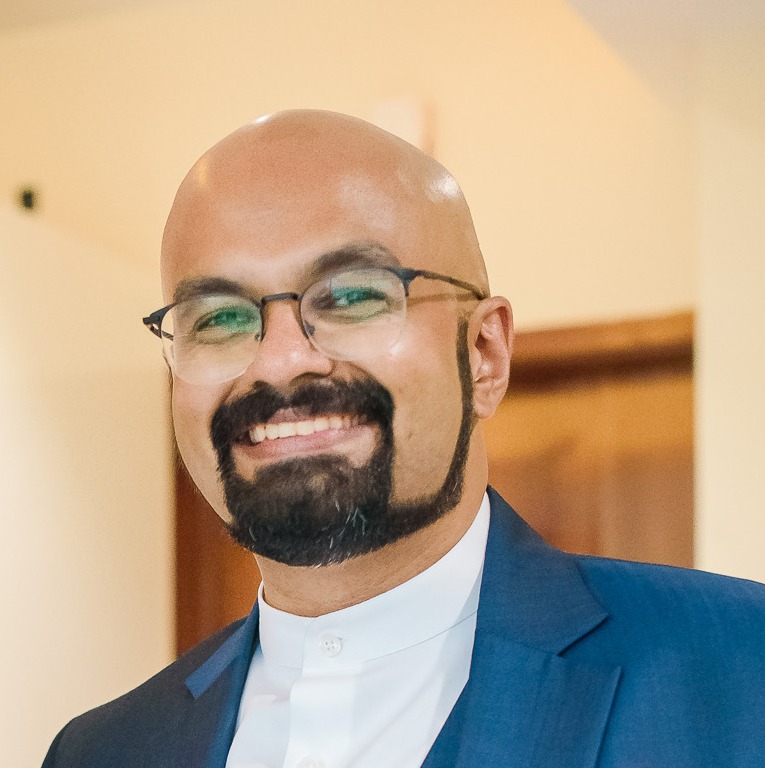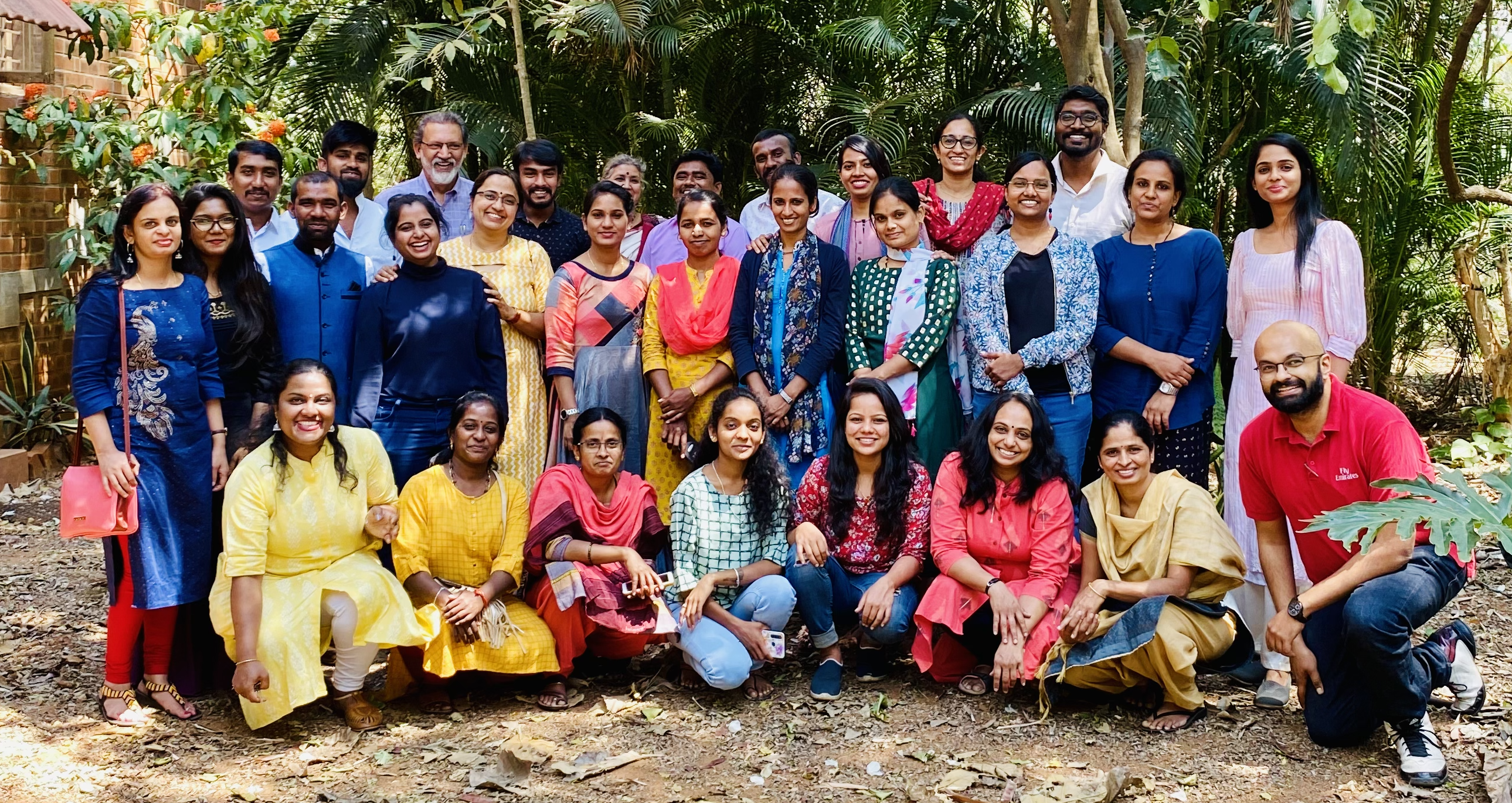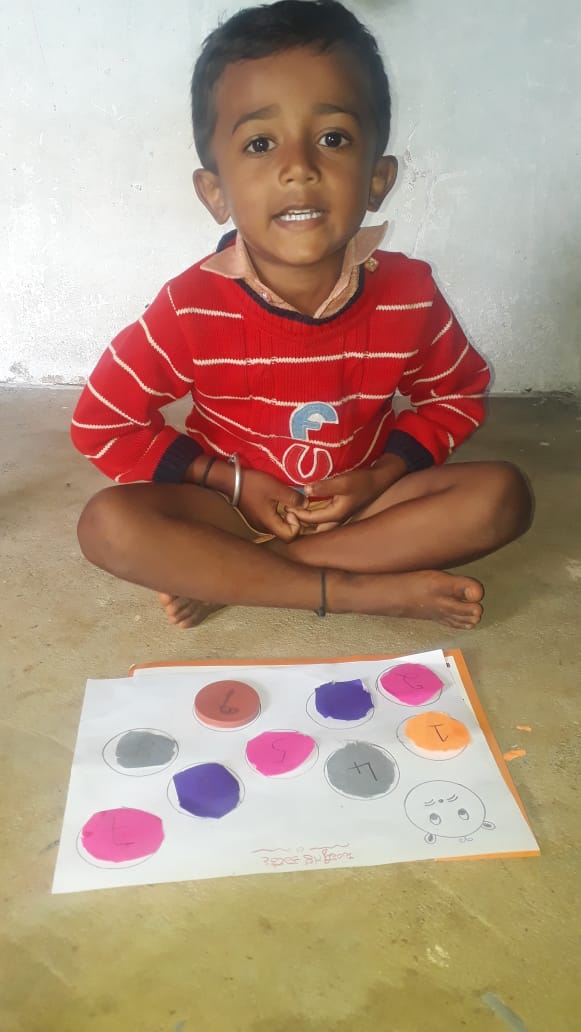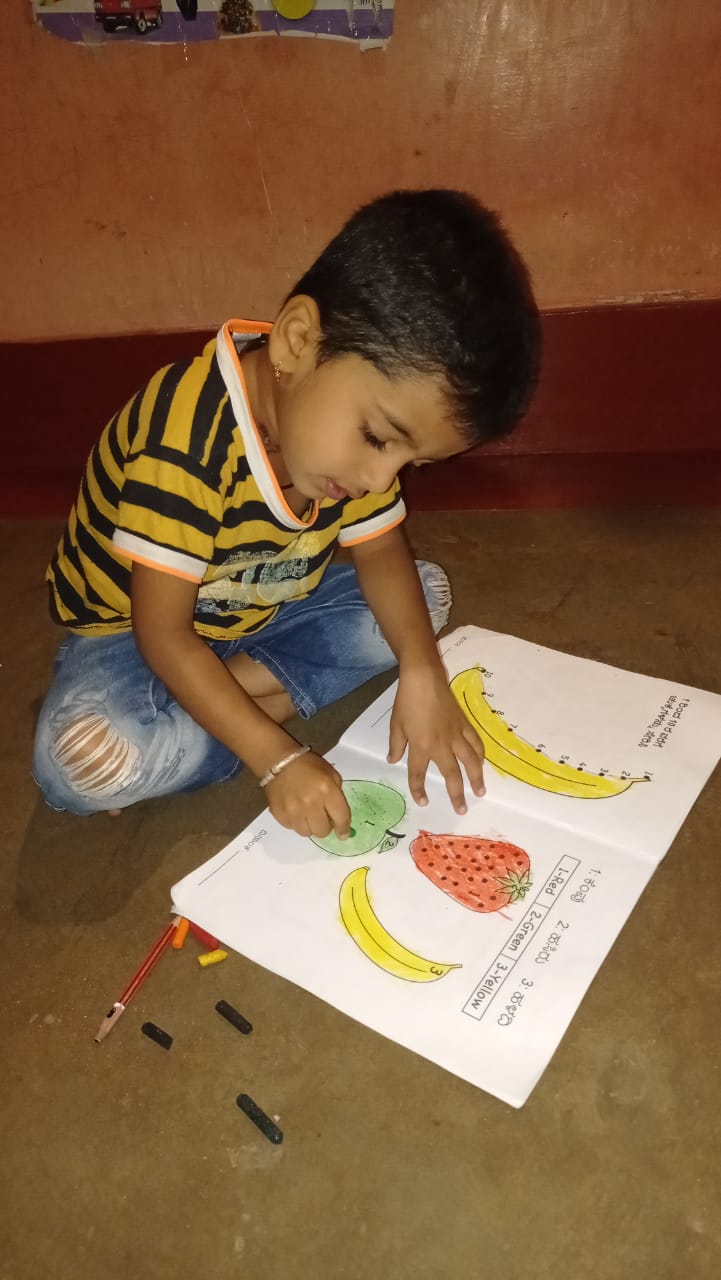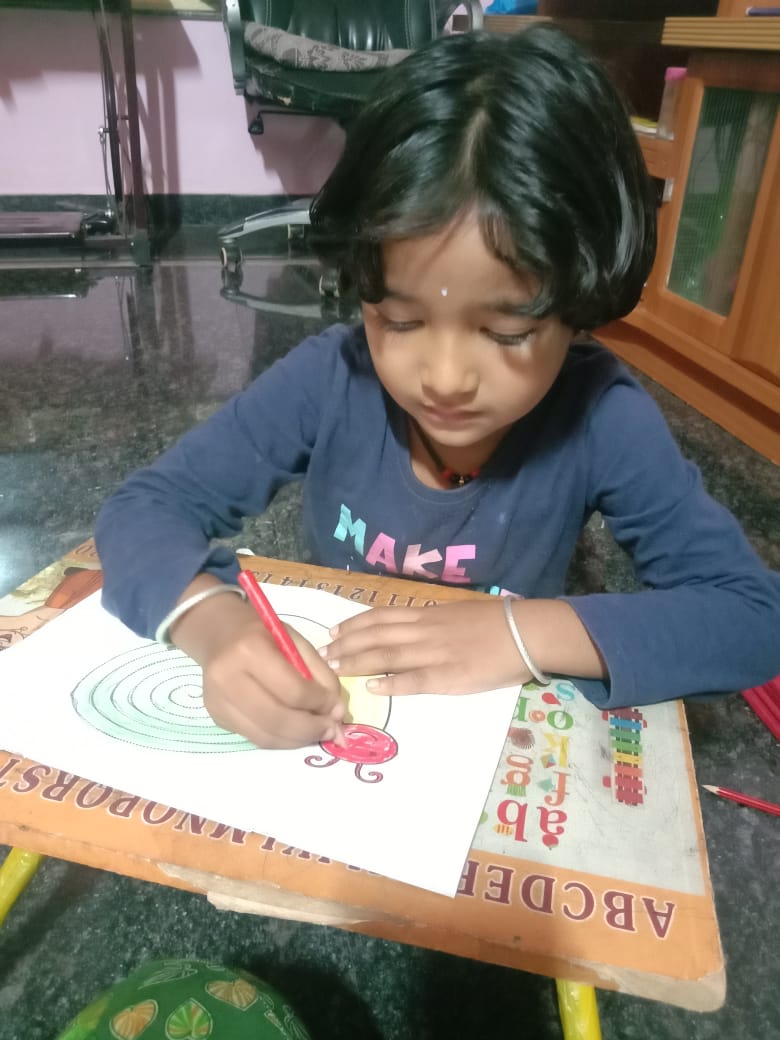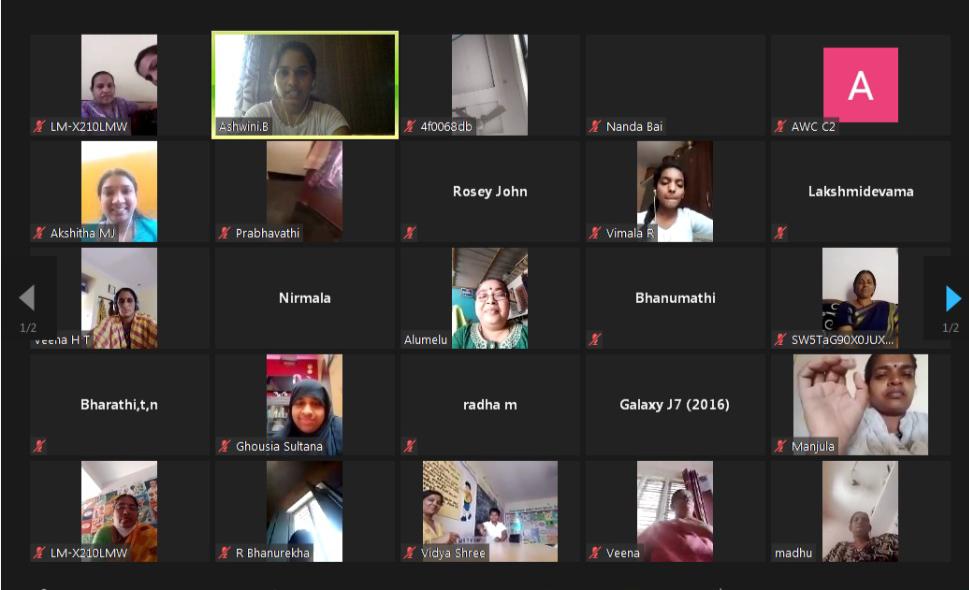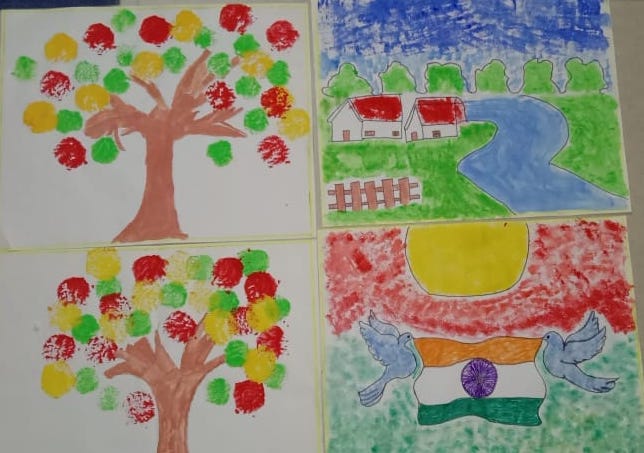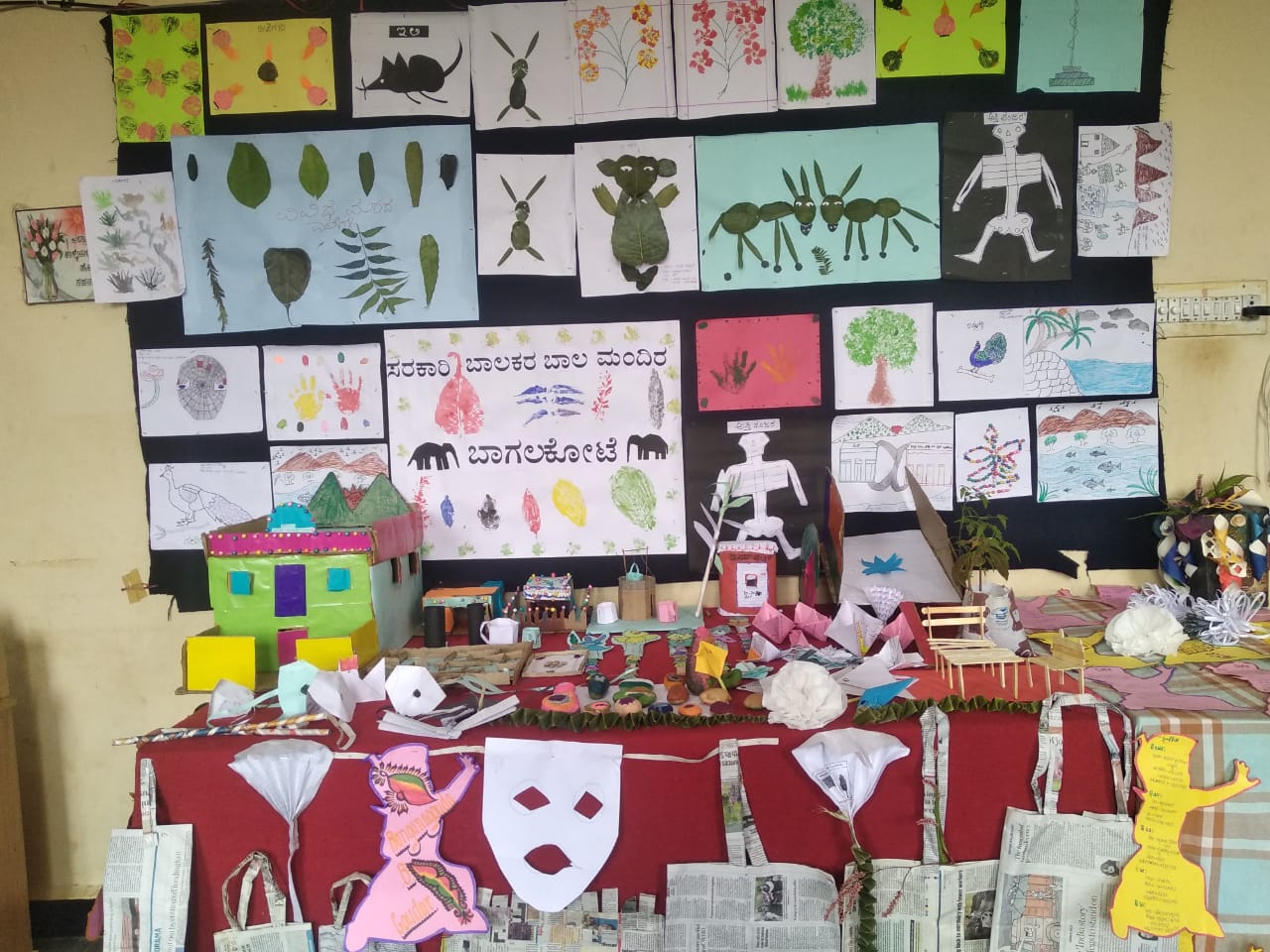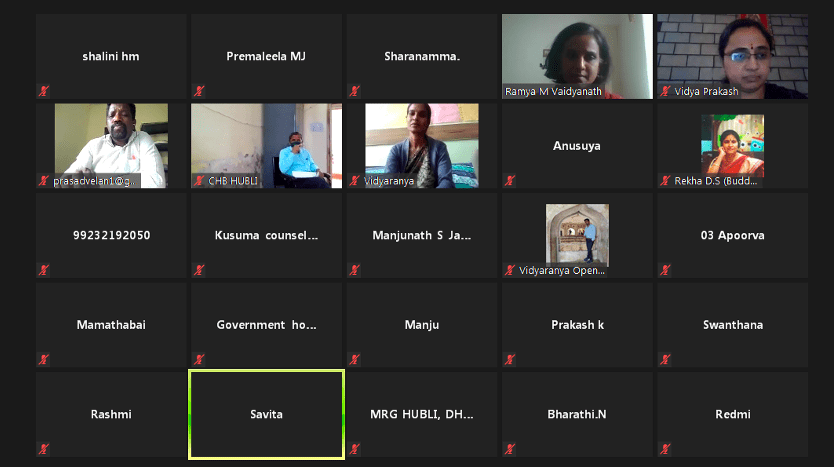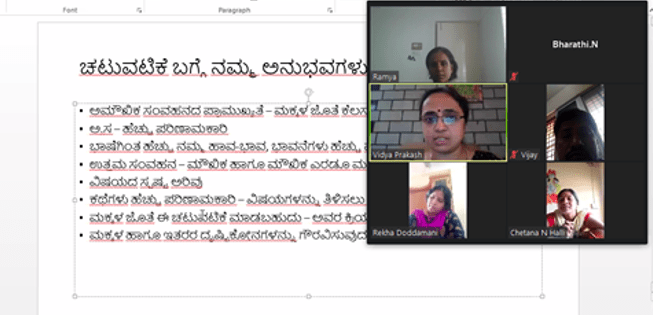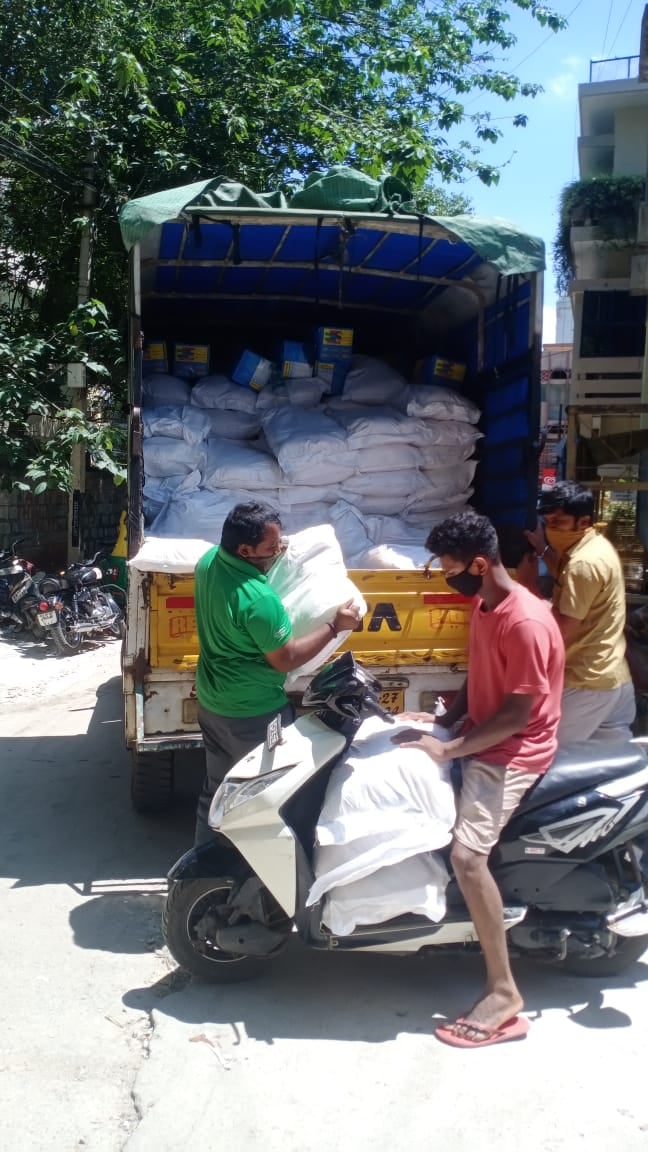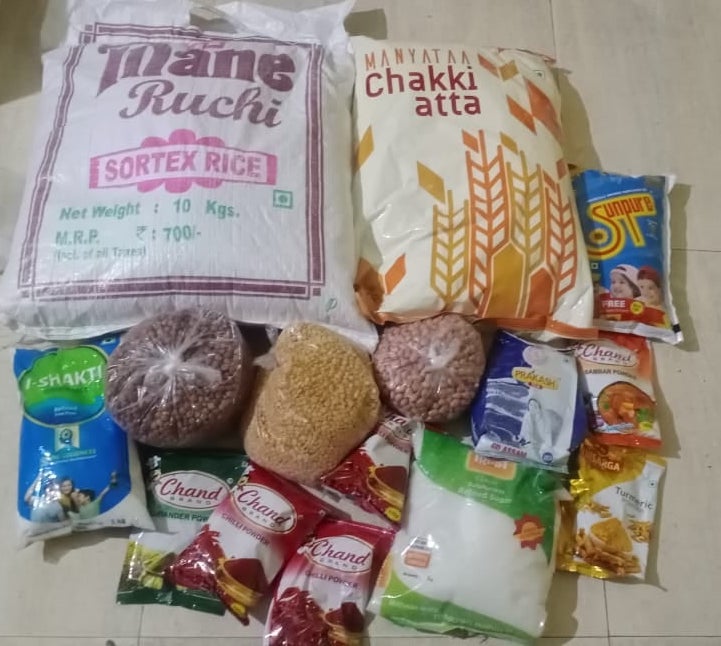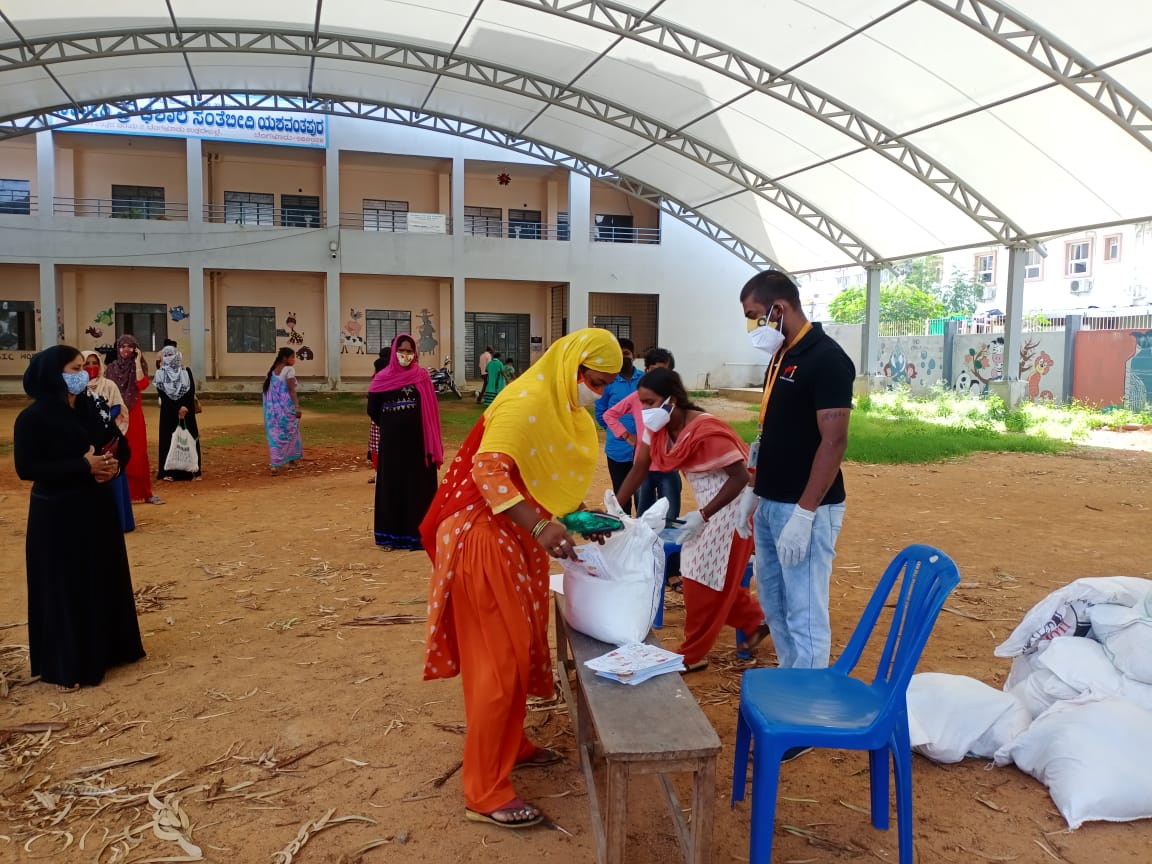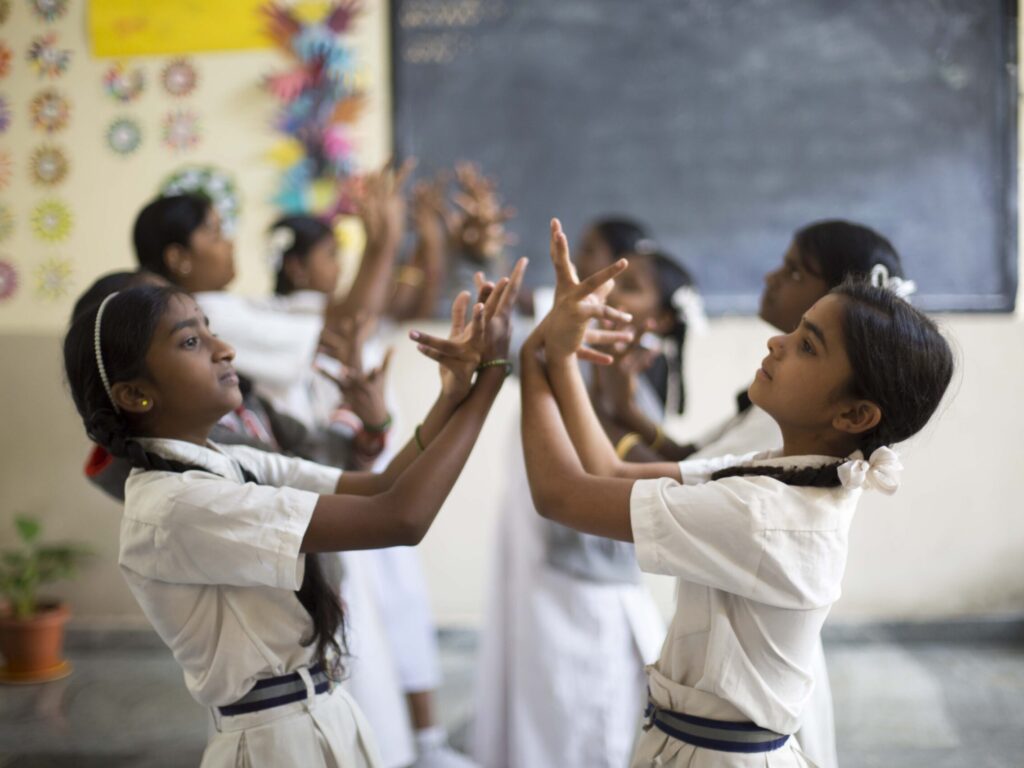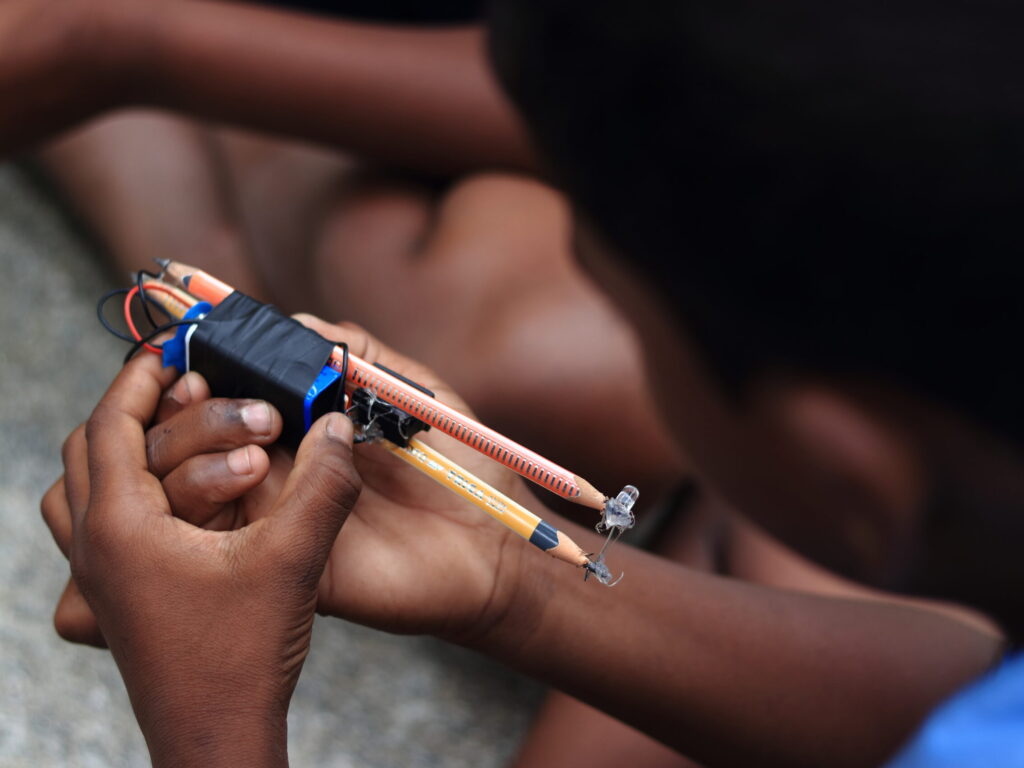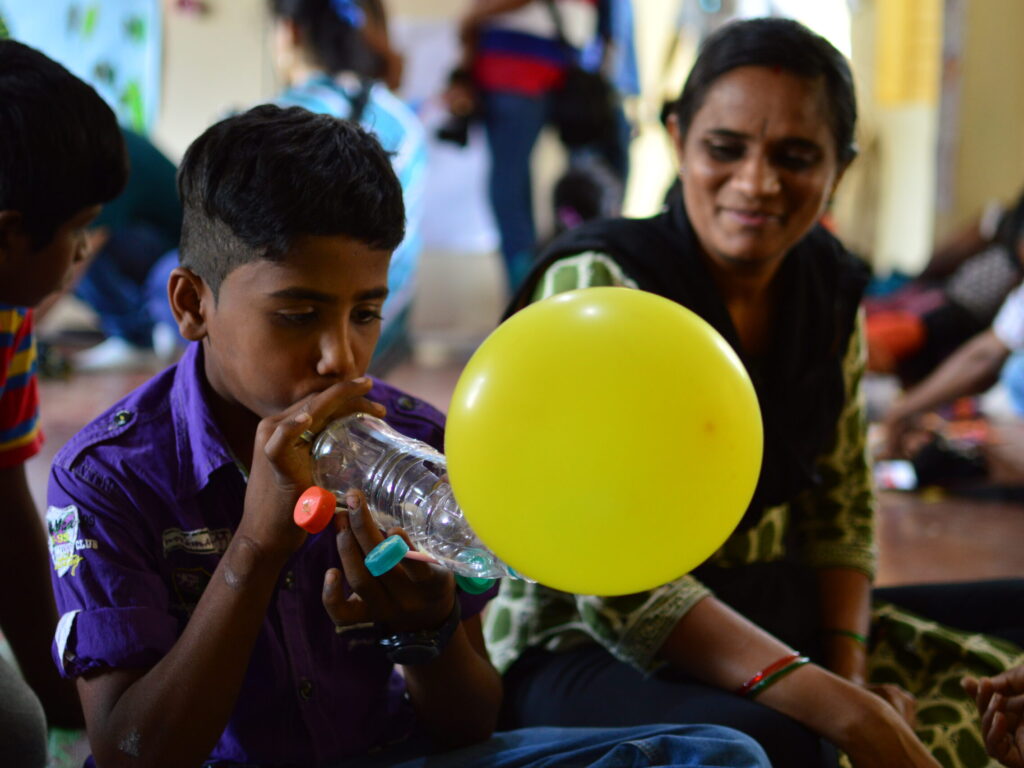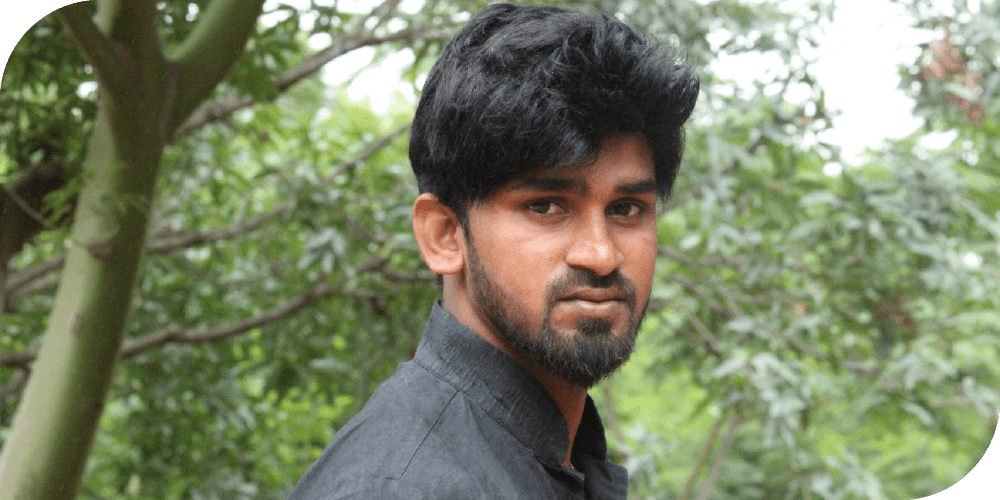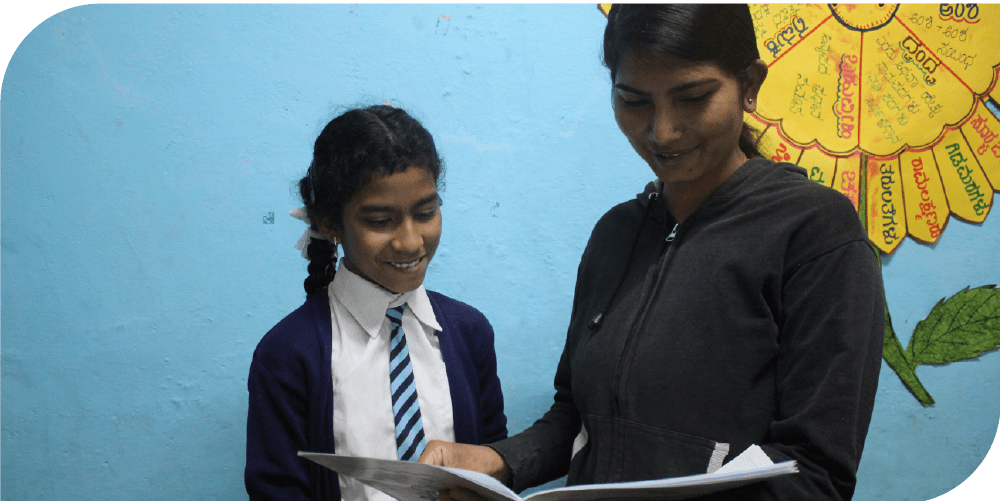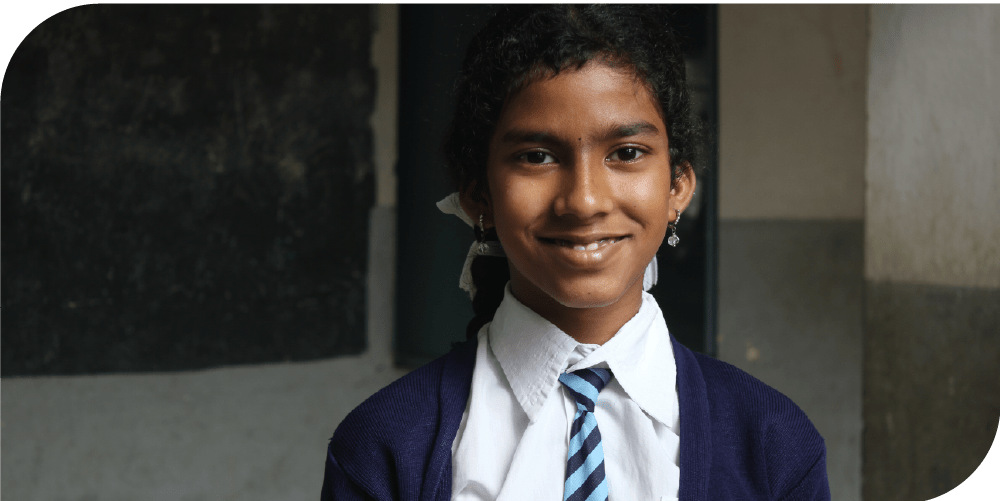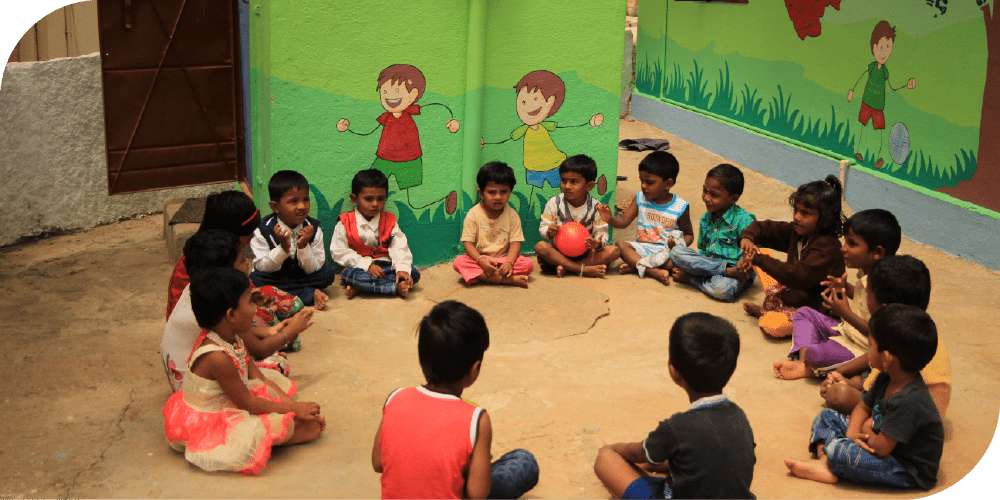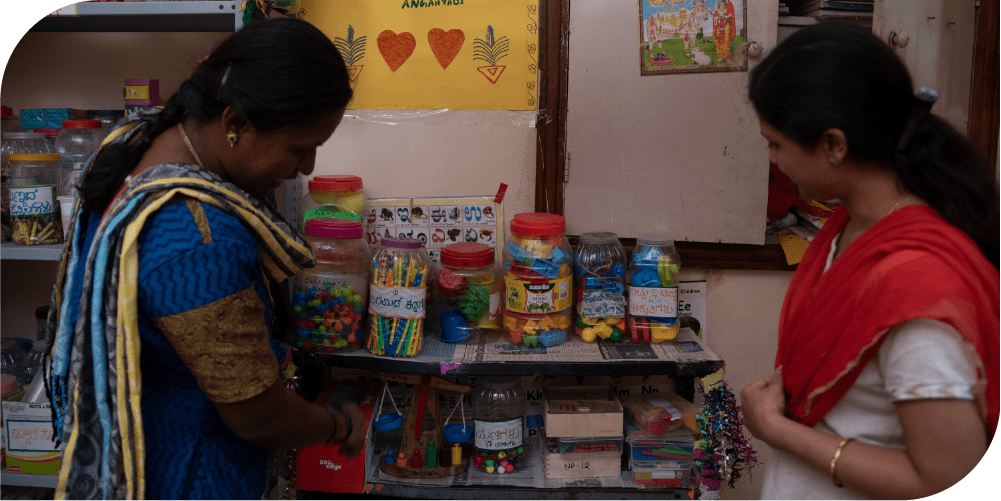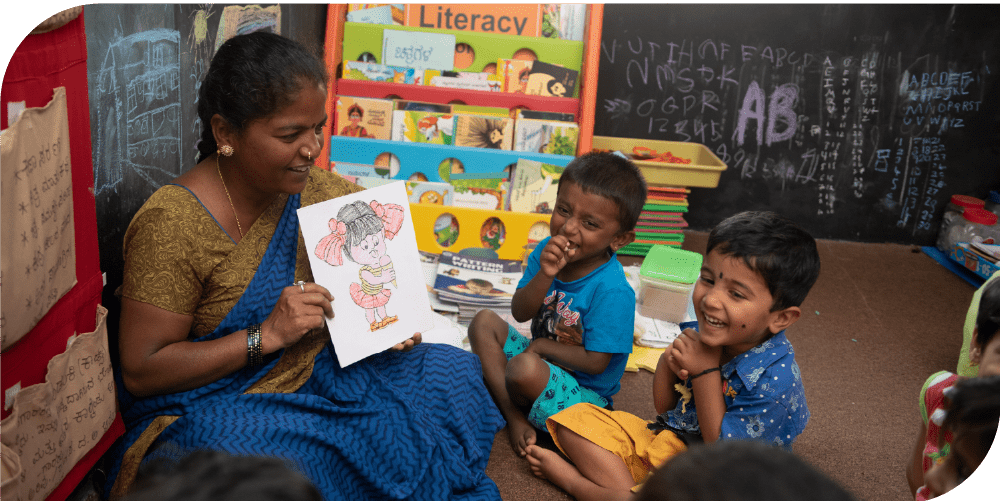Early Childhood and the Pandemic – How an NGO for Education Steps Up
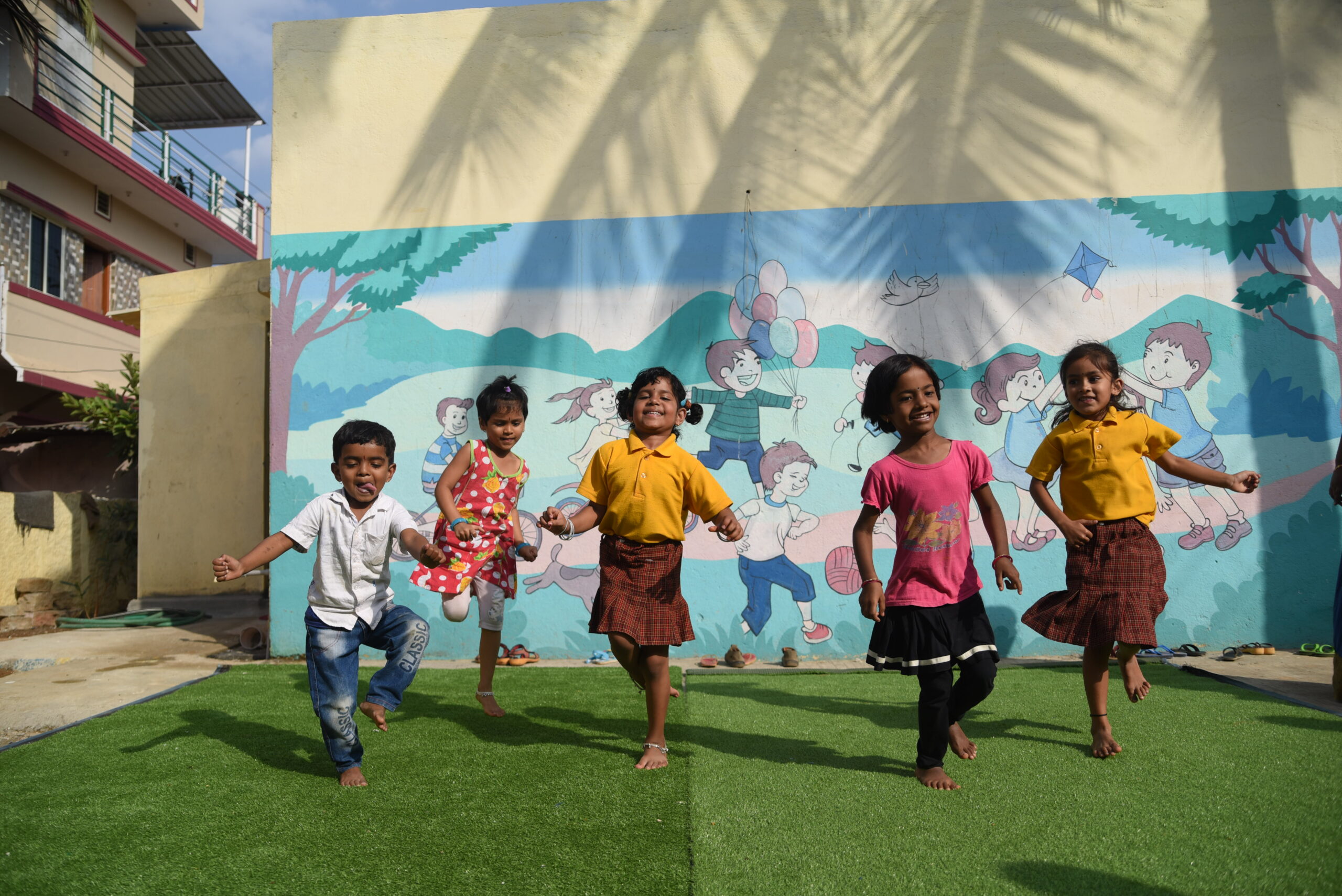
Early child development sets the foundation for lifelong learning, behaviour, and health. The experiences children have in early childhood shape the brain and the child’s capacity to learn, setting the pace for school readiness and eventual adulthood.
However, the COVID-19 pandemic through a spanner in the works with closure of Anganwadis (government pre-schools) which caters to over a quarter of India’s children between the ages of 3 and 6.
Although COVID-19 has not been considered a “children’s disease”, when we consider all aspects of young children’s development, the profound implications of the pandemic are evident. COVID-19 not only suspended normal childhood activities such as attending pre-school, interacting with extended family and friends, playing outdoors, and exploring nature but also disrupted the consequent socio-emotional benefits from children’s engagement in these experiences.
Makkala Jagriti, an educational NGO in Bangalore, recently organized a panel discussion on “Repercussions of COVID-19 on Early Learning and Development” with experts from the field of Early Learning and also from the Department of Women and Child Development. This was a discussion on observations, risks and remedies – an acknowledgement of difficulties that arose and the efforts made to curb them.
Impact of the pandemic on Early Childhood Care and Education
With Anganwadis closing, and young children staying at home, they were entirely relying on caregivers to meet not only their home needs but also all their developmental needs. This added burden on families to balance childcare and work responsibilities, compounded by economic instability and social isolation in many cases, is fertile ground for home environments characterized by toxic stress.
Anganwadis provide children with a holistic exposure – seeing, hearing, feeling and experiencing their surroundings, and connecting them with everyday learning. However, this opportunity was no longer available to them because of the pandemic. With children holed up inside their homes, their curiosity began to suffer. We started hearing stories of how some children did not even know what an auto rickshaw looks like!
We know that optimal brain development requires a stimulating and enriching environment, adequate nutrition, learning opportunities and social interaction with attentive caregivers. During the pandemic, access to these opportunities were severely restricted, compromising the healthy developmental trajectory of many children. Unsafe conditions, negative interactions and lack of educational opportunities during the early years can lead to irreversible outcomes, which can affect a child’s potential for the remainder of his or her life.
(Here’s a great article for more on the subject: https://developingchild.harvard.edu/resources/what-is-covid-19-and-how-does-it-relate-to-child-development/)
The equity gap has widened as well – children from educationally-disadvantaged families suffer much more than children with the privilege of having families who cater to the various learning and developmental needs.
The importance of early childhood education at Anganwadis is to enable overall readiness of children to go to school – have them get to age-appropriate levels of reading and numeracy. The disconnect from a physical space like an Anganwadi would put these abilities at risk too.
What actions were taken
Learning at Home encouraged
While the social setting is hard to replicate when there aren’t other children nearby, a lot can still be done at home. Here was an opportunity for parents and children to spend more time together. However, parents needed to be equipped with those soft skills that were essential for guiding the child through lessons. The guidance to do this was taken door to door by Makkala Jagriti’s team, with assistance from Anganwadi teachers.
Parents equipped to support Learning at Home
The other side of the argument lies in the fact that parents are now spending more time with their children than before. With a rich experience of Makkala Jagriti’s staff and consultants, Anganwadi staff were equipped to explain the various nuances early childhood care and education to parents. There was a lot of unlearning that had to be done:
- Handling tantrums with punishment: the frustration of being at home without friends would tend to increase the incidence of temper tantrums among children. These temper tantrums were often dealt with punishment, leading to more tantrums – an unwanted cycle.
- Permissive parenting: the unwillingness to continuously engage with children, instead giving them a mobile phone to keep them occupied, which in turn would lead to device addiction.
- Trying to induce learning by fear.
Some of the guidance provided was in positive reinforcement and positive discipline. Whenever children did something commonly construed as good, like helping their parents clean up, or finishing homework on time, they were deserving of praise. When children threw a tantrum or were not listening to instructions from parents, it would warrant a quiet leveling between the parents and the children – an explanation as to why the behaviour was not right, all done with kindness in the parents’ voice.
During the lockdowns, parents were encouraged to involve children in the process of learning and in the plans for the day for their learning, while remaining cognizant of their feelings. They were encouraged to explain about COVID-19 to the children from credible sources, and why they could not go to school at the time. They were also encouraged to help children maintain their links with life outside their home, for instance making them stay in touch with their grandparents.
Nutrition provided at home
An important contribution of Anganwadis towards the growth and development of children is the provision of nutritious meals. With carefully curated lunches provided to children, the right nutrients made available to ensure physical development and ability to grasp and retain what is taught are sustained. During the lock downs however, this availability of nutritious food was at risk. This is when Makkala Jagriti, with the help of generous supporters, ensured the delivery of groceries – key ingredients for nutritious meals – to households, especially those with little children.
Learning through experience is a very important aspect of early education, to foster values such as empathy at a young age. When everyone connected with the children – parents, teachers, the community – understands the importance of early childhood care and education, the sky’s the limit for how the child grows. After all, as the popular proverb goes, it takes a village to raise a child.
Makkala Jagriti thanks the following for their valuable inputs, during the panel discussion “Repercussions of COVID-19 on Early Learning and Development” (watch it here):
Dr. Srividya K., Guest Faculty, Early Childhood Education and Administration, Smt. V.H.D. Central Institute of Home Science College
Dr. Chaitra G. Krishna, Public Mental Health Consultant
Mr. Nischal B.H., Deputy Director – Bengaluru Urban District, Department of Women and Child Development
Mr. Nataraj, Deputy Director – Bengaluru Rural District, Department of Women and Child Development
